Lack of diversity was and still is a real problem in the literary word. Consequently, women, especially Black, Indigenous and women of colour are still at disadvantage in the literary world. Throughout my childhood and into my teen years, I almost always read male writers barring very few exceptions. However, the critical question is why did I read the kind of books I did during the first twenty five years of my life? The answer to this question can be both subjective as well as objective.

Females around me were not as well read, kept busy with household chores and hardly ever had any leisure time. Hence, I borrowed books mostly from men around me and they predominantly read male writers. Probably, that is because, male readers cannot make a genuine connection with experiences, metaphors, and representations in novels written by women. Not every day you will see a man reading Naomi Wolf´s Vagina: A New Biography in a park or on a subway. Men do not like to hear things that go against their beliefs especially when women are the ones telling these tales. When we pick a book written by a woman, often unconsciously thus insidiously, because of our biases, we assume that the book is written ´like a woman´ (romantic, tea parties, families, familial problems and against men).
Another reason could be, that there were disproportionately more male than female writers at that point in time. Publishers often rejected drafts by female writers and that has never gone out of trend. Many female writers have established that when they submit manuscripts under a male pseudonym instead of their real name, the number of responses they receive are higher.
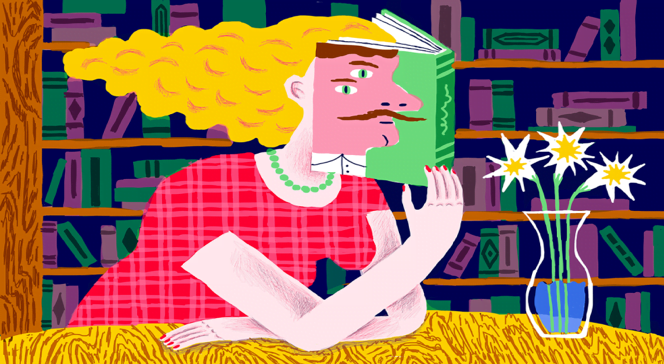
Many female writers had to use male pen names to divert segregation, prejudices and biases from the literary community. Publishers like male reader, often assume and describe subject matters of women writings as frivolous, unimportant, unnecessary and not very wise.
The gendered approach to female writings can be deciphered from the terms male writers have used for their female colleagues, “relentless cattiness” “bitchiness” “continual complaining” “in emotional tone” etc. Is this really true? Is the focus of women writing as narrow as we have been told by male writers? When women do write about their problems it is primarily because of the sociopolitical realities that exist around them. We do not denounce and criticize male writers for having a narrow focus or sticking to a certain subject matter. Women have written about wars, holocaust, history, politics, economics, crime, sports, science fiction, fantasy etc.
The biggest frustration for these writers is lack of many systematic and strategic privileges depending on how different intersections play out in a given space and time.
The issue here is not that women can or cannot write about certain subjects but that male writers are never dismissed and criticized the same way as female writers are. No one called David Foster Wallace’s Infinite Jest as pretentious with too many subplots and unnecessarily long footnotes. Not anyone seems to be complaining that Hemmingway´s characters are misogynists and drink too much. Nobody ever complains that male writers objectify women and pigeon hole their characters as per the gender roles. All that is okay. However, when women defy these gender roles, their writing is “too violent” “transgressive” and characters “too bold.”
This mindset acts as a barrier for women’s writings being published and reaching widespread audiences. This is also primarily the reason why books by women are being reviewed in lower numbers. Also, have we completely forgotten the negative discrimination that women face in terms of education and employment. Do women writers have the same resources that male writers have to flourish as writers? Women over many centuries have systematically been denied basic resources and opportunities in the world dominated by men and this can be very well extended to the literary world.
Like the sex and gender problem of the literary world, it is also blemished with problems of race, class bias, caste bias, religious bias etc. While it might look like that the strings of race, caste, class, religion, etc. attached to literature have been cut off, success of a female writer is still being determined depending on these very factors. Jane Austen, Sylvia Plath, J.K. Rowling, Arundhati Roy and other socially privileged writers are by no means standards for the representation of women in the literary industry. The biggest frustration for these writers is lack of many systematic and strategic privileges depending on how different intersections play out in a given space and time. None of this, seemingly, is a source of emotional or financial discomfort for white women, women from upper cast or class etc. who have always and still benefit from privileges.
While Jane Austen had the space and freedom to write about psychology, Wolf and Plath about poetry and Beauvoir about white feminism; Morrison, Angelou, Shyamalal , Nafisi and others wrote about slavery, colonialism, caste-system and several forms of oppression and discrimination. Anything outside of these topics by these writer are considered irrelevant. How many of us would read a book written by a Black writer about a mysterious man named Jay Gatsby educated at Yale who threw extravagant parties? How many publishers would be ready to publish such books? As opposed to this, how many white male or female authors wrote about evils that were present during their times or innumerable sins they committed around the globe? Nowhere are we to find novels about “colonialism” or “slavery” written by white male/female writers.
Publishers often rejected drafts by female writers and that has never gone out of trend.
The point is that BIPOC/WOC do not have the freedom of subject and white men/women have. Plath said, “I took a deep breath and listened to the old bray of my heart. I am. I am. I am.” The question that remains is what could “I am” mean for a Black enslaved woman or a Dalit out-cast women or a Muslim women who wander days and nights alike in search of a lost home after her untimely betrothal. To me, it seems the industry likes to champion male or white female authors more than the others.
Also read: 9 Women Authors Who Pioneered Postcolonial Feminism
Now, the awareness of this lack of diversity in the literary landscape has brought me here to introduce some brilliant BIWOC writers and reclaim our space in the literary world. While we don’t find it difficult to find books by male writer and white female writers, finding books by BIWOC writers, Asian writers and writers from third world is a similar experience as finding unicorns. Here is a very list of very few kick ass BIWOC women.
1. Toni Morrison
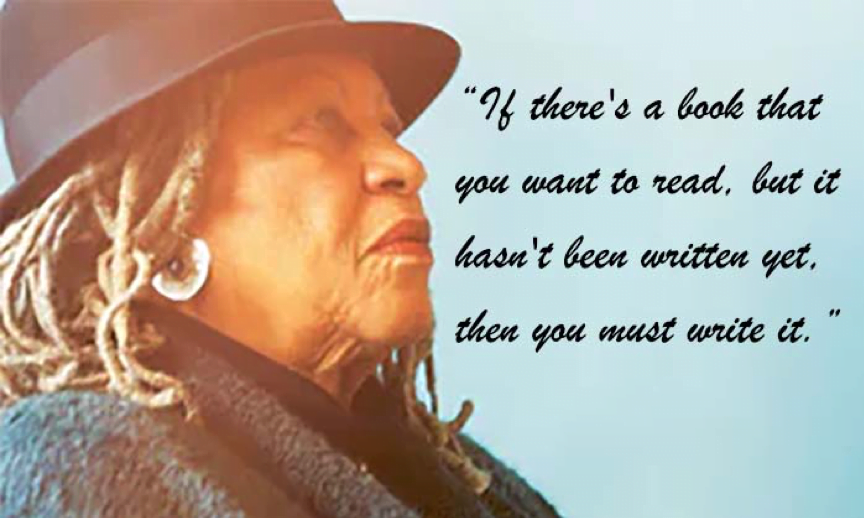
Morrison was born to a working-class family in Lorain, Ohio, in year 1931. Author of eleven books, Morrison specialized in African American literature and won the National Book Critics Circle Award and the Pulitzer Prize. In 1993 she was awarded the Nobel Prize in Literature. The best of her novels include, The Bluest Eyes, Beloved and Songs of Solomon.
2. Adaobi Tricia Nwaubani
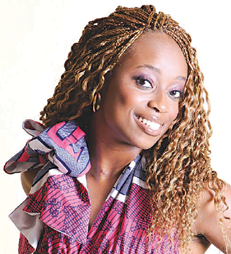
Adaobi is a Nigerian novelist and essayist. She was born in Enugu Nigeria and won the Commonwealth Wealth Writers Prize for her novel I Do Not Come To You by Chance. Her second book, Buried Beneath The Baobab Tree is an intriguing fictional account of the Boko Haram Kidnapping of 2014 in Nigeria.
3. Marjane Satrapi
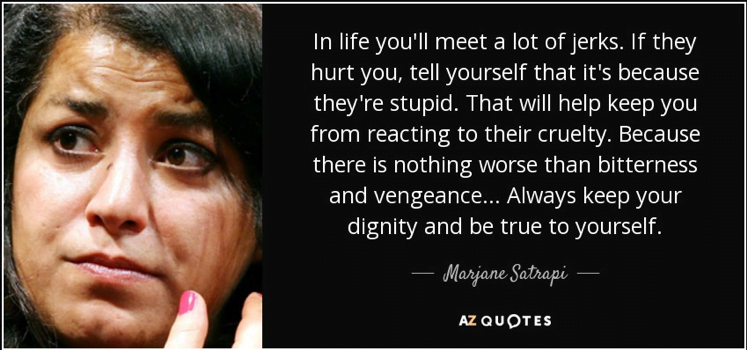
Majane born in Iran, is currently living in Paris. Marjane is a French graphic novelist, cartoonist, film director and children`s book author. Most of her graphic novels explore the gap between East and West. Her books Persepolis 1 (2000) and Persepolis 2 (2001) tells the story of her childhood and young adulthood. She has won a number of awards including Angoulême Coup de Coeur Award for Persepolis and Angoulême Best Comic Book Award for Poulet aux prunes.
4. Sujatha Gidla
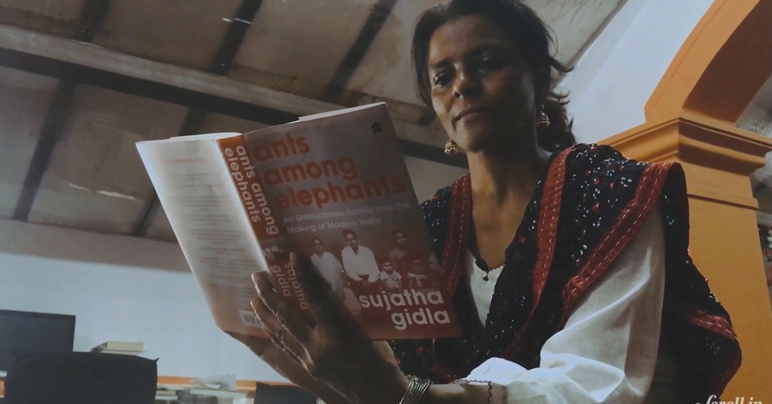
Sujatha is as an Indian-American author who was born in Andhra Pradesh and moved to New York when she was 26 years old and works on the New York Subway as a conductor. She is known for her book Ants Among Elephants: An Untouchable Family and The Making of Modern India. A story which tells us about the horrors of cast and hardships faced by Dalits in India. Sujatha won many awards for her book including Wall Street Journal Best Book of the Year.
5. Gogu Shyamala
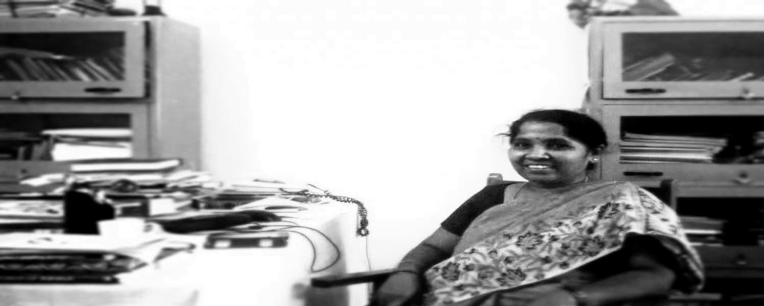
Gogu Shyamala was born in Telangana in the year 1969 to an agricultural working-class family. After facing numerous economic constraints, Gogu Shyamala obtained a Bachelor´s Degree in Sociology from Bhim Roa Ambedkar Open University. Gogu Shyamala identifies herself as Dalit Feminist. She writes in her mother tongue Telegu and her most famous work Father May Be an Elephant and Mother Only a Small Basket, but… was translated to English in the year 2012. Other than writing for various publications, she is also an activist with the Communist Party of India.
6. Han Kang
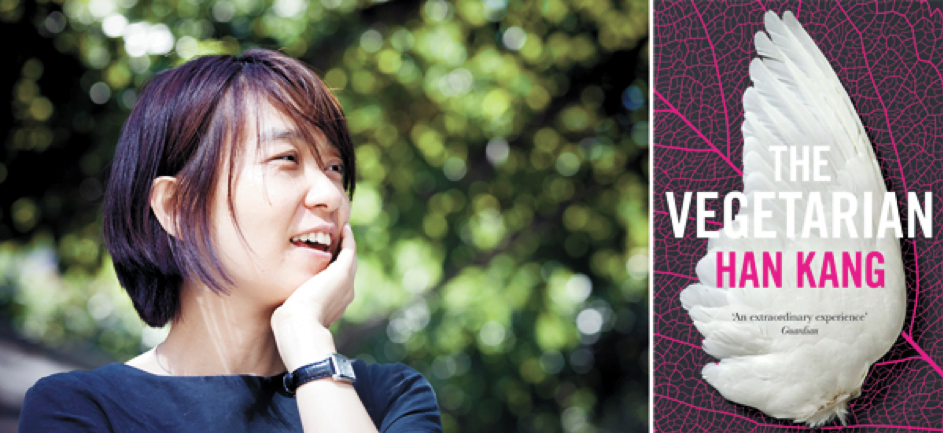
Han Kang born in South Korea in 1970 won the Man Booker International Prize, 2016 and Yi Sang Literary Award, 2005 for her book The Vegetarian. The Vegetarian is her first book translated into English followed by many more. Han Kang is the first Korean to be nominated and to hav won the Man Booker International Prize. Her recent book is an autobiography which centres around the death of her younger sister.
Also read: 15 Books By Indian Women Writers That You Loved In 2018
This is by no means an exhaustive or representative list. Suggestions to add to this list are welcome in the comments section.
About the author(s)
Hafsa Bashir Bhat identifies herself as a Muslim woman from Kashmir. She has double masters in Human Rights and Peace and Conflict from National Law School of India University Bangalore, India and School of Oriental and African Studies, University of London, London. Hafsa has worked in the area of women rights and gender for five years. Focus of her research is primarily intersectional in nature.
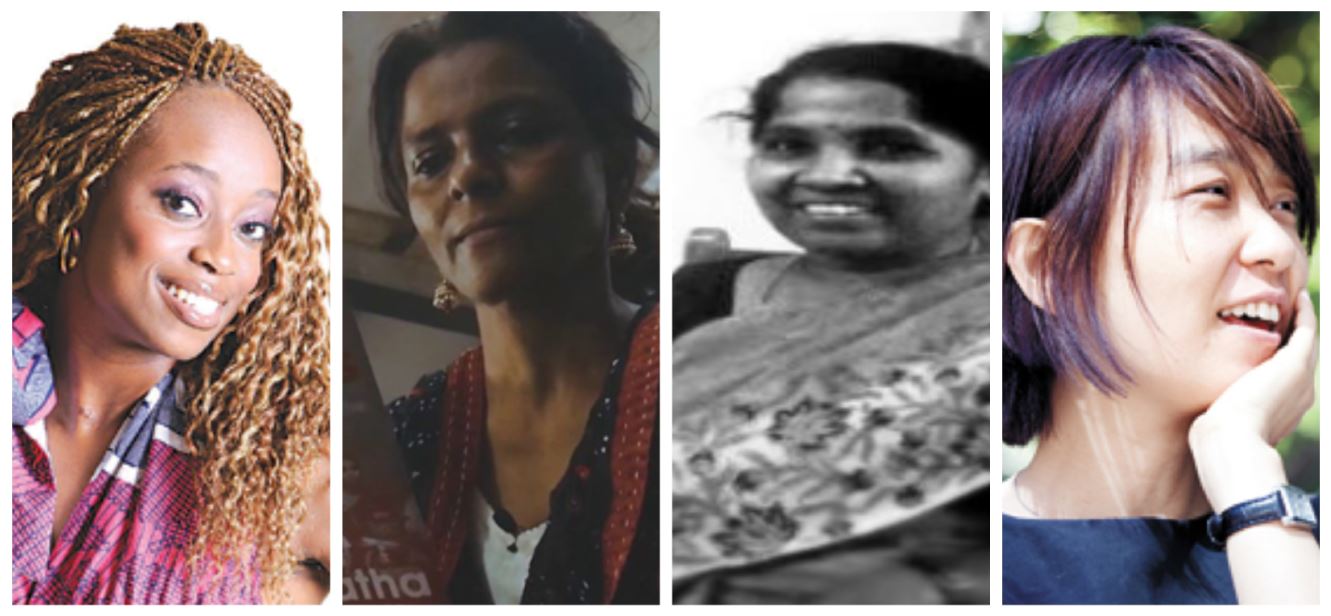

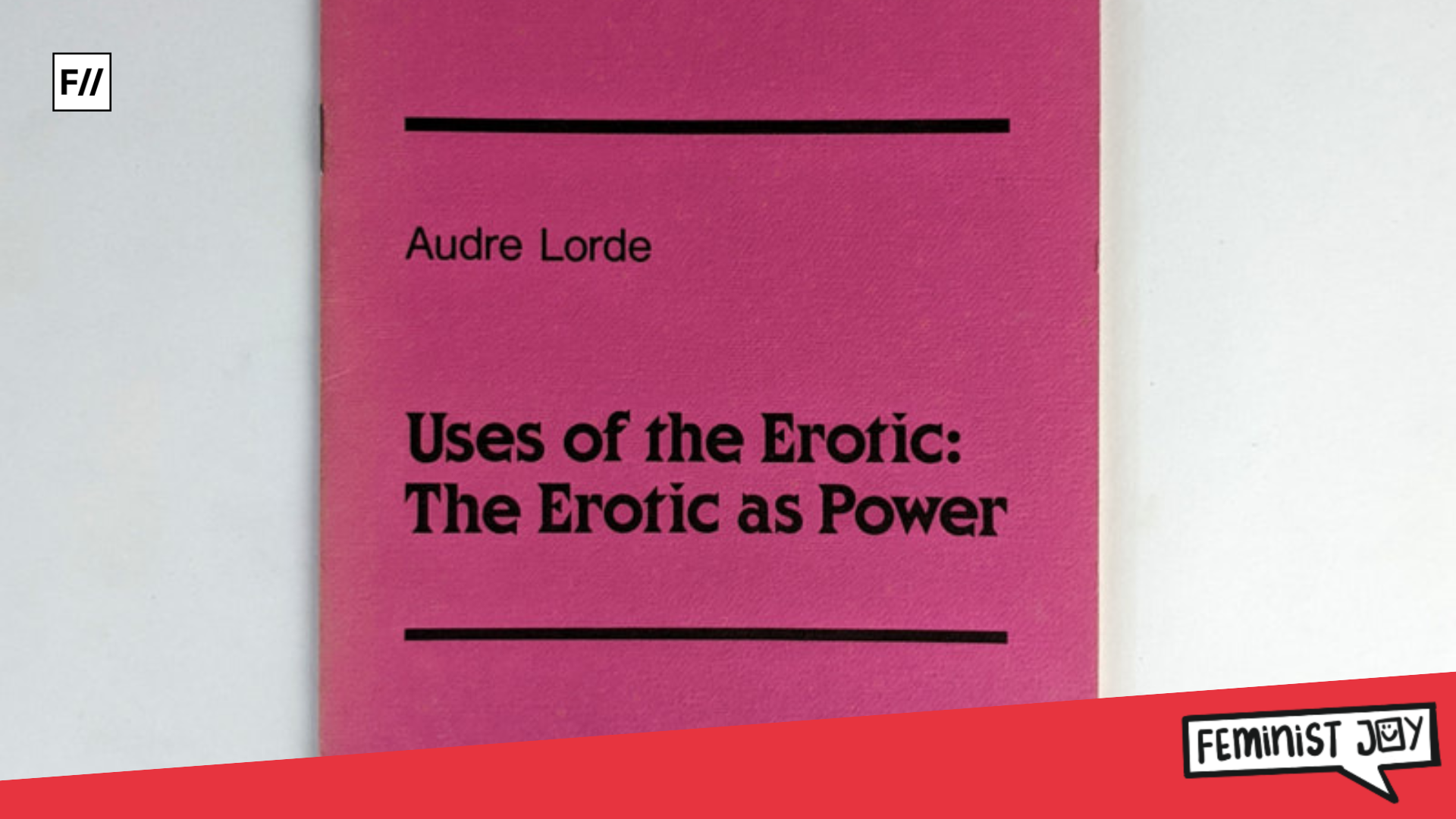
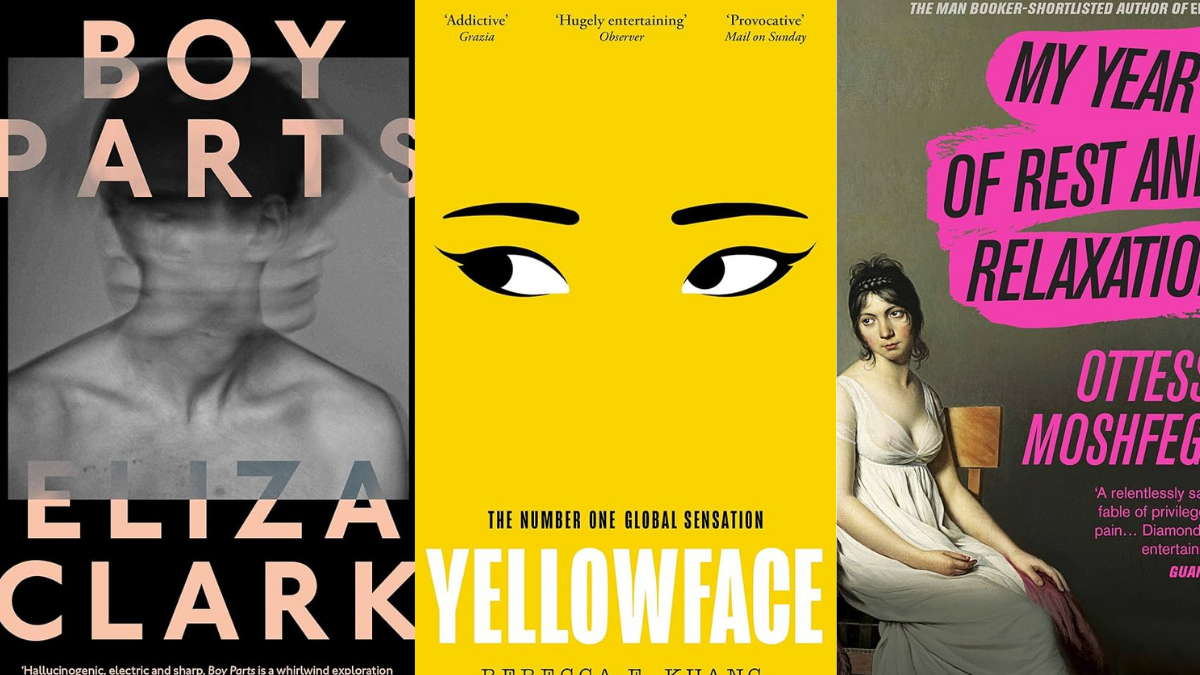

“No one called David Foster Wallace’s Infinite Jest as pretentious with too many subplots and unnecessarily long footnotes.” You must not have been paying much attention to the reception history because those sorts of charges have been bandied about ad nauseam. It’s basically the cliched / uninformed knock on DFW’s writing.
“Nobody ever complains that male writers objectify women and pigeon hole their characters as per the gender roles.” LOL of course they do. There is an entire body of feminist literary criticism from the mid-20th century on that makes just such a critique.
We are living through the greatest renaissance of writing by women and people of color in history. Pretending otherwise gives your readers an unnecessarily grim account of the literature of our time. The list of great contemporary writers you reference is testament to the talent that is out there.